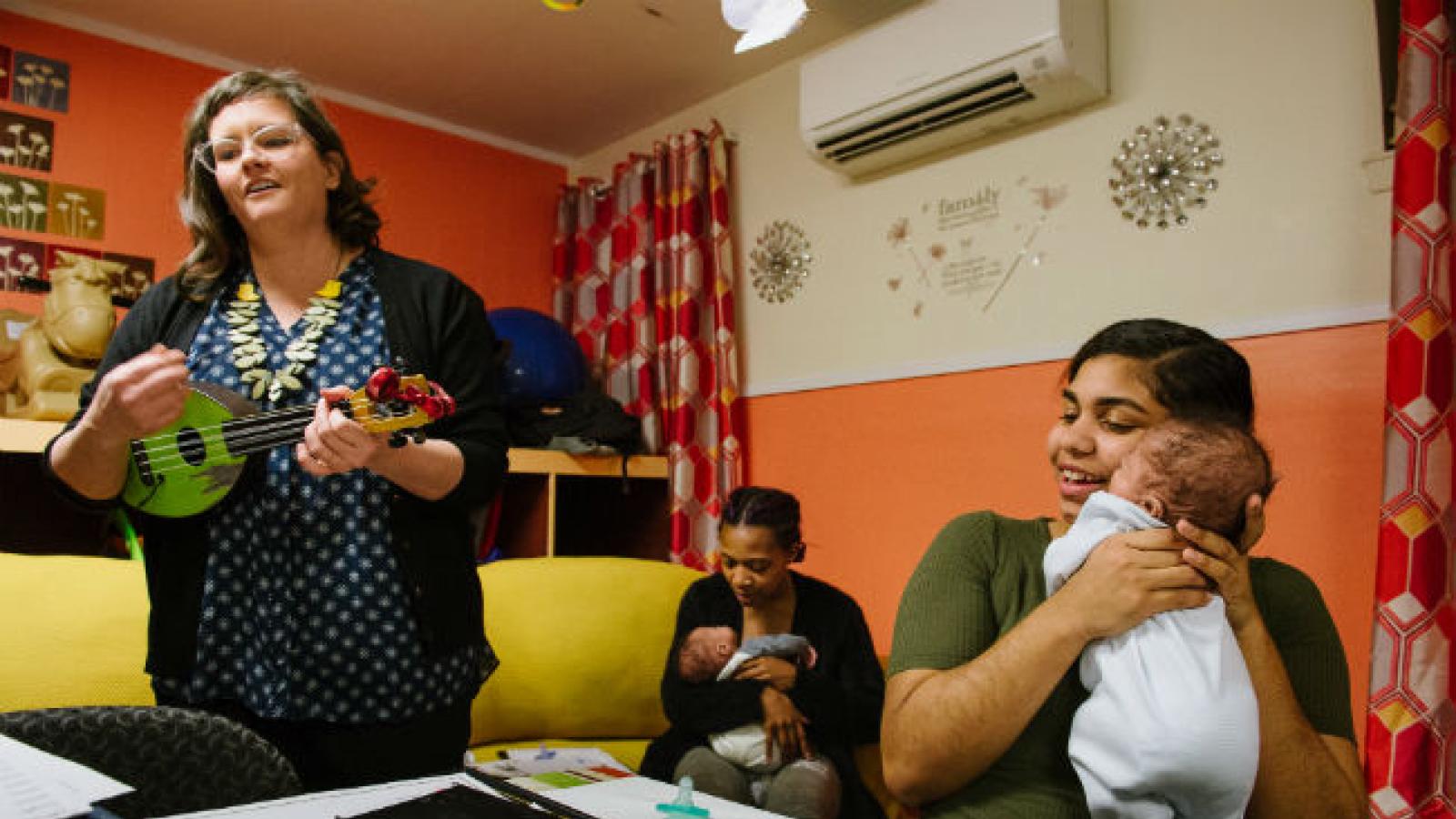Lullabies: A Different Type of Love Song

It is an understatement to say that new motherhood is challenging. There are sleepless nights, raging hormones, and the nagging feeling that you have absolutely no idea what you’re doing. But for teenage mothers, that can be the easy part. “For some, they're living in poverty; they often are ostracized at school. Sometimes they even become homeless because their families are upset,” said Sarah Johnson, director of Carnegie Hall’s Weill Music Institute, which is dedicated to music education and social impact programs. “They're experiencing all of this stress and as a result, they frequently have a very hard time bonding with their babies and connecting emotionally with their children.”
But if there is anything that can help elicit an emotional response, it is music. The Weill Music Institute already had an established partnership with the Jacobi Medical Center in the Bronx when the two organizations came up with the Lullaby Project, which was recently awarded an NEA Creativity Connects grant. Over the course of three sessions, the Lullaby Project pairs new and expectant mothers with artists, who help the young women compose a lullaby for their babies. The lullaby is then professionally recorded, allowing mothers to have a permanent audio keepsake for their children. During the final session, lullabies are shared with other program participants, and mothers reflect on the experience.
Although the Lullaby Project originally focused on teenage mothers, it now reaches vulnerable mothers facing a variety of challenges, including those living in homeless shelters or within Rikers Island Correctional Center. The program has reached 350 participants to date, and has spawned partnerships with arts organizations across the country as they embark on Lullaby Projects of their own. All lullabies produced are available through SoundCloud.
In general, Johnson said, lullabies are ideal for forming maternal bonds because they “represent a musical intimacy,” as mothers sing to their audience of one. Through the program, mothers are taught and encouraged to sing all types of lullabies to their children, not just for bonding purposes, but to promote language acquisition and cognitive development in babies. Like reading to infants, singing is considered an effective way to close the “word gap” in low-socioeconomic children, whose language skills can begin to lag behind those of children from higher-income families as early as 18 months.
But the act of creating a lullaby, rather than merely singing one, can deepen and expand these benefits. Writing a lullaby allows mothers to “express their own wishes and dreams to their child, their love for their child, their hopes for their child,” said Johnson. For mothers whose pregnancy may have prompted stress or hardship, considering and verbalizing these positive feelings can be an important development in the mother-child relationship.
The Lullaby Project has also generated an element of empowerment that Johnson said project leaders did not originally anticipate. “A lot of the women who participate in this project may not be feeling very confident in their capacity to parent,” said Johnson. But writing a lullaby “has given them a chance to feel that they are giving a thing of enormous value to their child. That child will have that recording, will have the memory of hearing his or her mom sing that song and know that it was written specifically for them. That has real value.” Virginia Commonwealth University is currently studying the effects of the Lullaby Project on maternal well-being, including parenting confidence and stress levels, in a study funded in part by an Art Works: Research grant.
But perhaps no study can precisely capture the magic of musical moments between mother and child, or the bonds these moments can forge. One Lullaby Project participant described it aptly in her lullaby “Heavenly Flower,” simply referring to it as “unexplainable love.”
“You’re my light, you’re my flower in bloom.
April storm brought you here.
You’re my light, no more fear.
Unexplainable love, unexplainable love, unexplainable love.”




